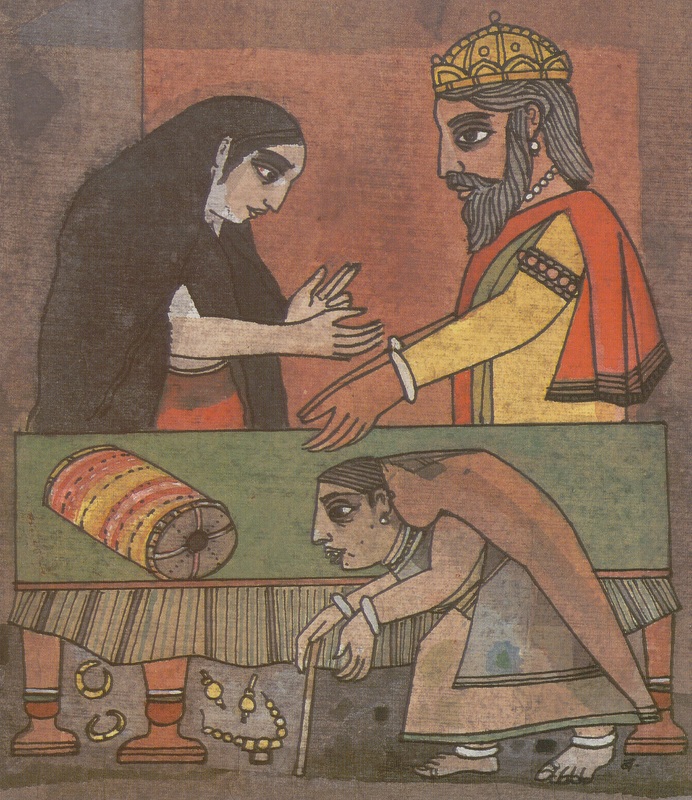Sita
How fortunate you should abandon your kinfolk, your pride and wealth, proud Sita, to follow Rama when he was banished to the forest. A woman who holds her husband dear—whether he is in the city or the forest, whether he is good or evil—gains worlds that bring great blessings.
— “Ayodhya” 109.20-109.25
Rama could ask for no better wife than Sita — beautiful, loyal, and pure. Sita’s wifely devotion is apparent in her every action, from boldly volunteering to join Rama in his forest exile to refusing to give herself to Ravana when she is imprisoned in Lanka.
As an avatar of the goddess Lakshmi, Sita is safe from the rakshasa king’s unwanted touch. However, this does not stop Ravana from attempting to seduce her. When Hanuman, one of Rama’s fiercest followers, comes to rescue her, she is clearly miserable, but refuses to go with him, citing her husband’s honor. Even in her greatest moment of pain, Sita realizes that Rama’s honor depends on rescuing his wife himself, and she is willing to spend more time in captivity for this.
Despite her clear demonstrations of fidelity, Sita’s purity comes under questioning after she is free from Rama’s lair, so she throws herself into a raging fire to prove her unyielding loyalty to her husband. She survives the trial, yet is later banished to fully assuage the suspicious people of Kosala. A pregnant Sita ends up in the hermitage of Valmiki, the all-knowing author of the Ramayana, where she bears twins.
These two sons eventually meet their father as adults, causing Rama to regret sending her away. Tragically, it is too late for the family to be reunited in Kosala. In a final demonstration of her goodness, Sita is swallowed up by the earth goddess. Rama is distraught at the loss of his wife, but the gods assure him that they will someday meet again.

Kaikeyi

